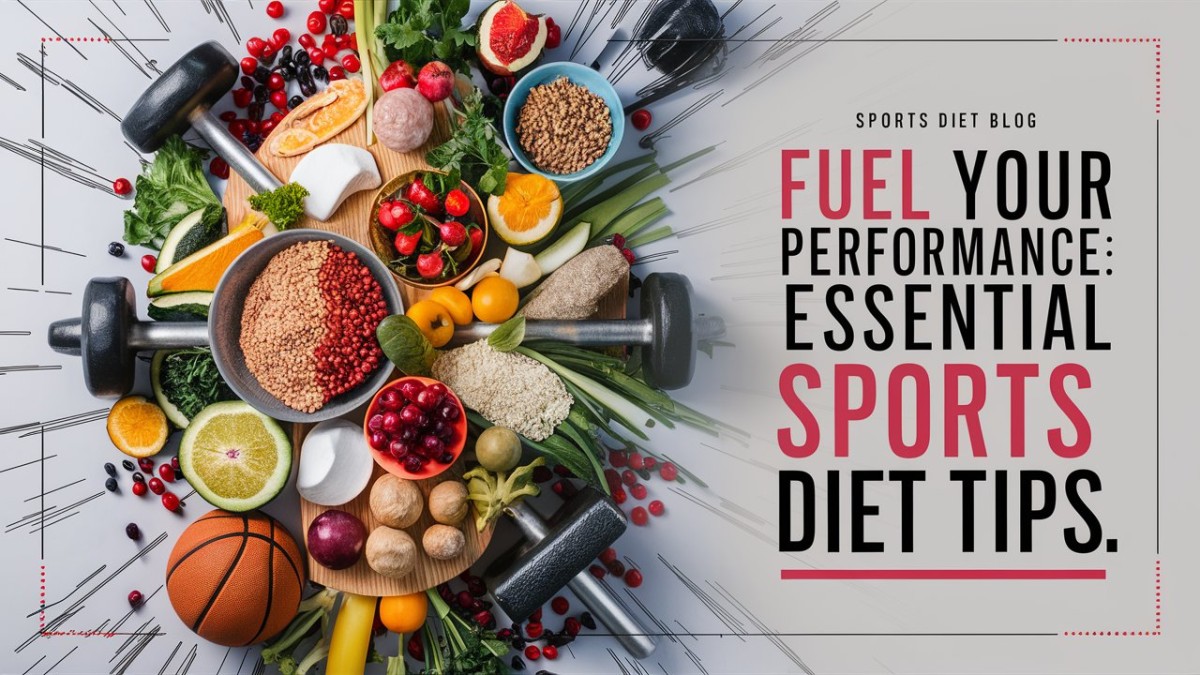"Exercise is king. Nutrition is queen. Put them together, and you've got a kingdom."
- Jack LaLanne, fitness and nutrition expert
Hello, all the athletes & sports freaks out there!
Do you need more nutrition to perform well in your games?
And then you started searching for the best sports diet plan, now you are at the right place.
A sports diet should be followed seriously and consistently to boost your performance.
Nutrition is important for all the athletes or the sports freaks that will support the training process with the best outcomes. Healu is going to explain everything regarding the foods to eat and avoid by creating the best diet plan.
Diving into sports nutrition
So sports diet or nutrition is one of the most important branches of nutrition that deals with the dietary needs of all the sports people or athletes. Now what does the sports diet mainly focus on? It focuses on the type of diet that the athlete is following, the quantity of diet he or she is taking, meal timing, and fluid intake to evaluate the person's performance. Include fruits and vegetables as they provide all the nutrients in the form of vitamins, minerals, and phytonutrients. Whole grains by avoiding refined grains as they lose their nutritional value in the processing time. Lean proteins and low-fat dairy should also be a priority.
Now, coming to the main part of what components should be included in the sports diet, it includes most of the macro- and micronutrients such as carbohydrates, proteins, fats, vitamins and minerals, and hydration.
Macronutrients for sports diet:
These can also be called the building blocks of energy.
Carbohydrates:
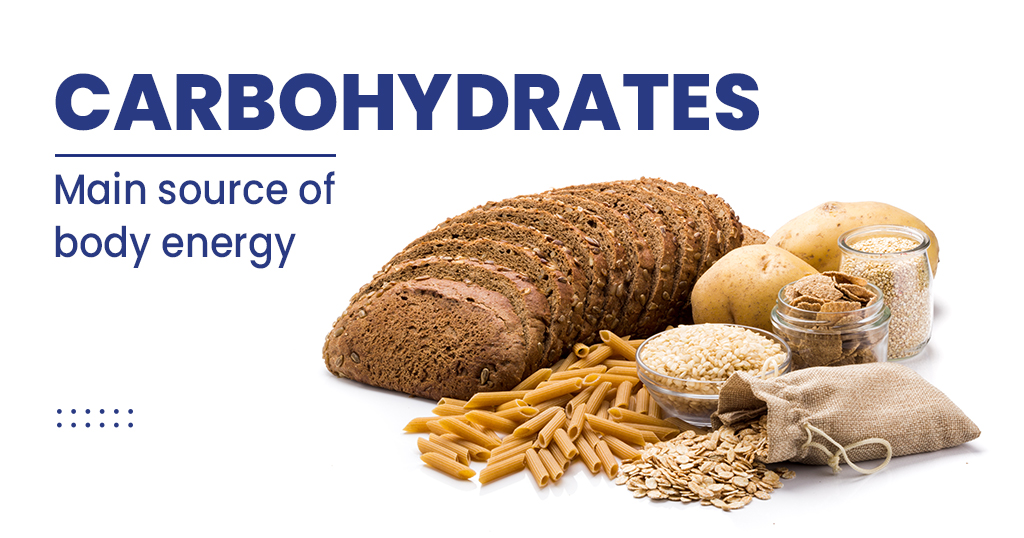 ❖Carbs, carbs, carbs many people tell us to avoid them, and few say a low-carb diet is best but what is the truth? Carbohydrates are the primary source of energy for any individual, especially for the sports person doing high-intensity exercises. But why they are crucial, is because they get stored in the liver and muscles as glycogen, and later on they get broken down into energy while you exercise. Carbohydrates should be 45-65% of your overall calorie intake.
❖Carbs, carbs, carbs many people tell us to avoid them, and few say a low-carb diet is best but what is the truth? Carbohydrates are the primary source of energy for any individual, especially for the sports person doing high-intensity exercises. But why they are crucial, is because they get stored in the liver and muscles as glycogen, and later on they get broken down into energy while you exercise. Carbohydrates should be 45-65% of your overall calorie intake.
❖So include foods that contain carbohydrates such as whole grains, fruits, vegetables, and legumes before and after your workout sessions to maintain a steady energy balance.
“A study published in the "Journal of Applied Physiology" found that consuming carbohydrates during prolonged intensity exercises can significantly enhance performance and delay fatigue .”
Proteins:
❖Proteins are a must for all sportspersons because they are essential for muscle growth, repair, and maintenance. Proteins are building blocks of amino acids that are essential for repairing the muscle tissues that get broken down while you exercise.
❖If you are an athlete then you must incorporate high-quality protein sources such as lean meat, poultry, fish, eggs, dairy products, and soy products. But how much protein is optimum? It depends on the intensity of exercise you are doing, the general recommendation is 1.2-2 grams of protein per kilogram of your body weight.
“ A review in the "Journal of the International Society of Sports Nutrition" highlighted that protein intake immediately post-exercise enhances muscle protein synthesis and helps in recovery .”
Fats:
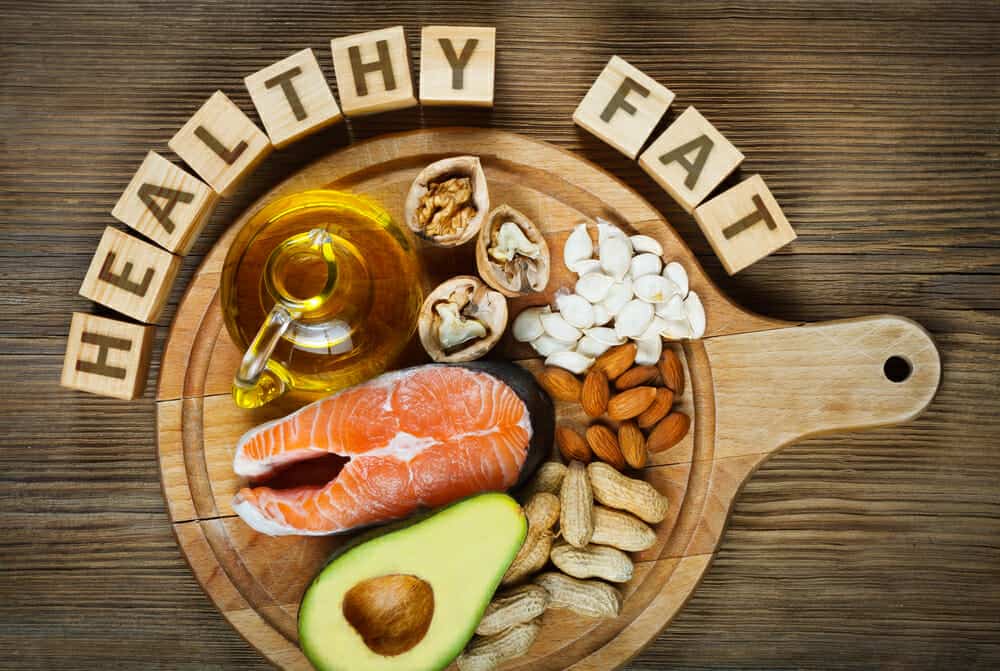 ❖Fats should be avoided they are unhealthy! No, there are healthy fats that are key sources of energy mostly during prolonged, low-moderate intensity exercises. Only for this? No, not only for this healthy fats are essential to support cell structure, hormone production, and absorption of fat-soluble vitamins. They should be 20-35% of your overall calorie intake. Mainly omega-3 fatty acids and fish oil have anti-inflammatory properties to enhance your performance.
❖Fats should be avoided they are unhealthy! No, there are healthy fats that are key sources of energy mostly during prolonged, low-moderate intensity exercises. Only for this? No, not only for this healthy fats are essential to support cell structure, hormone production, and absorption of fat-soluble vitamins. They should be 20-35% of your overall calorie intake. Mainly omega-3 fatty acids and fish oil have anti-inflammatory properties to enhance your performance.
❖Now, what are those healthy fats? You can have them in the form of avocados, nuts, seeds, olive oil, eggs, and fatty fish. Balance is a must so do not replace fats with carbohydrates and proteins in the diet.
“A study published in the "Journal of Sports Science & Medicine" found that omega-3 fatty acids can reduce exercise-induced inflammation and promote faster recovery .”
Micronutrients for sports diet:
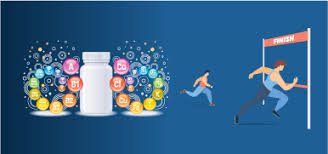 Now, it's time for you to welcome micronutrients to your diet because they help you in your physiological functions enhancing your sports performance. So here are your essential micronutrients:
Now, it's time for you to welcome micronutrients to your diet because they help you in your physiological functions enhancing your sports performance. So here are your essential micronutrients:
Iron:
Iron-rich foods! They are highly essential for oxygen transport in the blood, you can include them in the form of red meat, poultry, fish, lentils, and fortified cereals.
Calcium:
Eat calcium-rich foods to have strong bones! Not only for bones they also support muscle function. Now what are the sources of calcium they include dairy products, leafy green leafy vegetables, and fortified plant-based milk.
Vitamin D:
Yes, vitamin D is also for healthy bones and immune function. You can get vitamin D from sunlight, fortified foods, and supplements.
“A study in the "American Journal of Clinical Nutrition" found that vitamin D for bone health and immunity is essential for calcium absorption and bone mineralization, and it plays a significant role in maintaining bone density.
B Vitamins:
All the B vitamins can be essential for your athlete's performance because they help in energy production and blood cell formation. They can be found in whole grains, meats, dairy, and leafy green vegetables.
Hydration: The Cornerstone of Athletic Performance
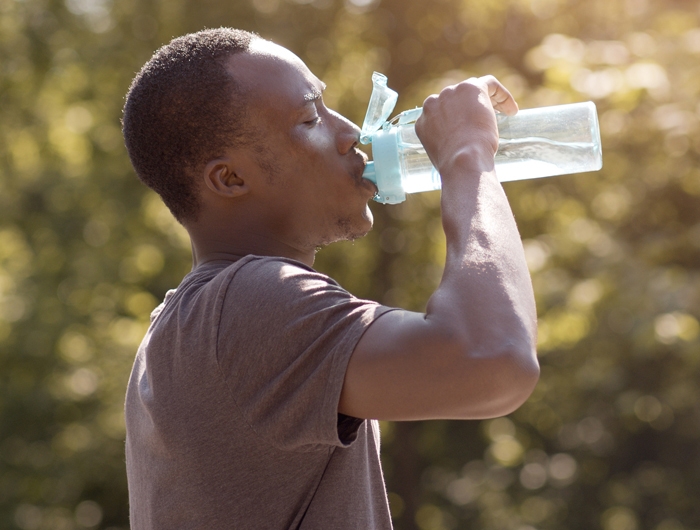 ❖Yes, hydration is important as it is the cornerstone of your athletic performance because even mild dehydration can reduce your performance and it can increase the risk of cardiovascular issues as it’s one of the commonly seen issues in many sports persons.
❖Yes, hydration is important as it is the cornerstone of your athletic performance because even mild dehydration can reduce your performance and it can increase the risk of cardiovascular issues as it’s one of the commonly seen issues in many sports persons.
❖You need to stay hydrated by drinking water before, during, and after your exercise session. Generally, water is enough for your fluid intake but during prolonged exercising or intense activities electrolytes containing sports drinks can provide you with additional energy to maintain electrolyte balance in your body.
“According to a study in the "American Journal of Clinical Nutrition," even mild dehydration can impair cognitive and physical performance, particularly in high-temperature environments .”
Timing of Meals and Snacks
There are a few guidelines for you to ensure you intake proper nutrition in the recommended time:
According to a study by the International Society of Sports Nutrition, you need to have meals that contain proteins of about 20-40 grams throughout the day every 3-4 hours.
|
Pre- Exercise |
Firstly before starting exercise your last meal should be 3-4 hours ago. And that should be packed with carbohydrates, proteins, and fats. You can have a small snack rich in carbohydrates 30-60 minutes before you exercise. |
|
During exercise |
If your exercise session is more than one hour then you can have small amounts of carbohydrates sports drinks or fruits to maintain stable energy. |
|
Post-exercise |
After 30-60 minutes of your exercise session, you can have a meal or snack containing carbohydrates and proteins to replenish glycogen stores and promote muscle repair as reported by ISSN. |
Meal planning for sports person:
Meal |
Protein |
Carbohydrates |
Fats |
Vegetables |
|
Breakfast |
12-14 grams |
30 grams |
12 grams |
1 cup |
|
Lunch |
40 grams |
45 grams |
14 grams |
2 cups |
|
Dinner |
40 grams |
30 grams |
15 grams |
1-2 cups |
Supplements: Enhancing Performance or Not?
Maximum of the nutrition is provided by the balanced diet itself, but few athletes may benefit from a few supplements such as:
Protein Powders:
Protein powders can be a convenient option for athletes to include in their dietary routine, as they come in different sources such as soy, brown rice, whey, pea, and egg whites. Also, they are known to increase lean muscle mass by boosting performance.
Creatine:
❖Creatine is one of the compounds that is produced from amino acids, but it is also found in low amounts in meat and fish.
❖Supplementing daily with 5 grams of creatine monohydrate, the most common form has been shown to improve power and strength output during resistance training, which can enhance sports performance.
Caffeine:
❖Most of you have seen that all the famous sports people carry black coffee bottles with them, this is the reason that caffeine can improve strength activities, such as running, jumping, throwing, and weightlifting. Do you know why? This is because coffee has brain-stimulating properties that reduce your rate of perceived exertion, or how hard you feel you’re working.
❖However, caffeine isn’t for everyone and can be dangerous in high doses, especially for those younger than 18. Whichever form you decide to use, start with a small amount and gradually increase your dose as long as your body tolerates it.
Caution: It's important to consult with a healthcare professional or sports nutritionist before starting any supplement regimen to ensure safety and effectiveness.
Concluding lines:
Are you covered with all the nutritional requirements for your athletic performance, do visit with a sports nutritionist who can help you adjust your diet as per the recommended amounts of macro- and micronutrients. Remember, that nutrition is not a one-size-fits-all approach; it requires careful planning and individualization to meet the unique needs of each athlete.
